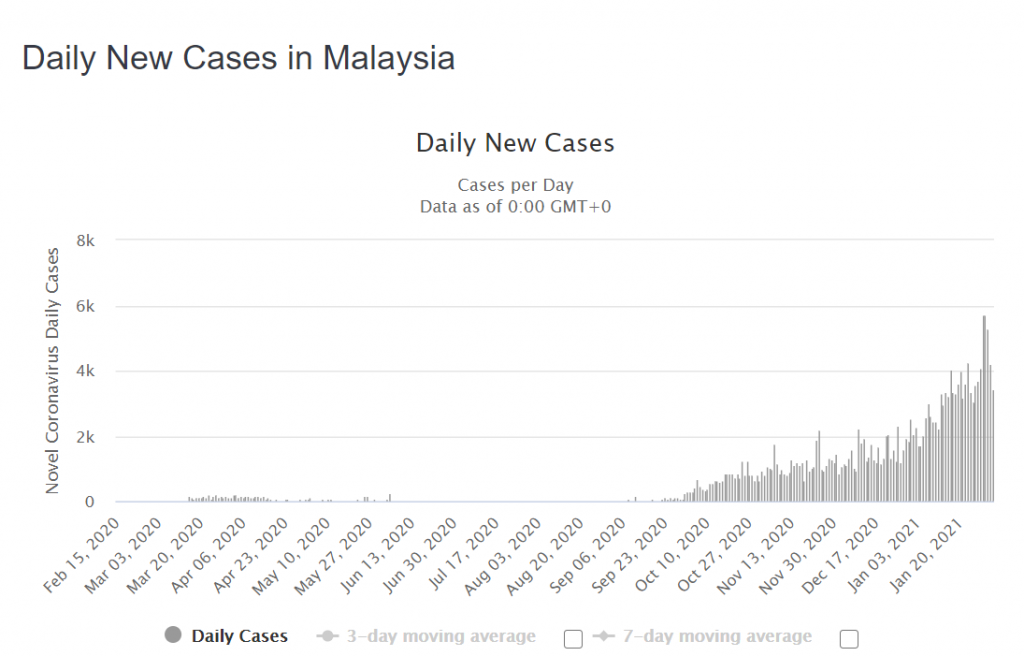If you took a cursory glance at the headline, you might have thought we time-travelled back to 2020.
On 18 March last year, Malaysia imposed its Movement Control Order (MCO), a preventive measure to curb the spread of Covid-19.
It was supposed to last for two weeks, but went on for several months due to the persistent outbreaks.
It’s nearly been a year since then, but Malaysia, like many other countries, is still struggling to contain the pesky coronavirus.
M’sia MCO Extended to 18 Feb Which Means M’sians Can’t Celebrate CNY
Malaysia will extend its MCO for all states and federal territories except Sarawak, from 5 Feb 5 until 18 Feb.
This means that most residents will have to cancel their plans to celebrate Chinese New year.
Or any plans for a gathering, for that matter.
The announcement was made by Senior Minister for Security Ismail Sabri Yaakobsaid, who said the daily cases in all these states still show an upward trend.

What’s worrying the Malaysian authorities is the sporadic and high rate of spread in the community, which includes citizens as well as non-citizens.
This MCO, just as it was last year, aims to slow down the rate of spread.
However, this MCO will be a little different to the one Malaysians experienced last year.
MCO 2.0
Some described life under the first MCO as akin to living in a post-apolcoplyptic world.
Back then, nearly all economic activities, except for essential services such as F&B outlets and pharmacies, ceased.
Once infections dwindled, the country shifted to its recovery movement control order (RMCO), with the addition of localised restrictions in areas with a spike in cases.
But under this MCO – MCO 2.0 – more economic sectors will be permitted to continue operating, due to the devastating economic impact of the first.
However, some of the restrictions in the first MCO will still be in place for MCO 2.0.
For instance, residents are only allowed out for daily necessities – including emergency cases – and only two from each household can be out at a given time.
Interstate travel is also prohibited, and there will be a restriction on the number of people permitted to enter supermarkets at any one time.
Recorded Highest Daily Tally On 30 Jan
There’s a reason why the Malaysian authorities have chosen to extend the country’s MCO, despite the difficulties it presents.
Malaysia is now battling a fresh and much larger wave of the coronavirus, and infections are continuing to rise.
On 30 Jan, the country recorded 5,728 new cases, its highest daily tally ever.

Now, back in March, when Malaysia was supposedly in Covid-19 crisis, they were only reporting over a hundred new infections a day.
It barely had any cases from June to September in 2020, before the coronavirus returned with a vengeance.
So, even though Singapore has seemingly contained infections, we can’t be complacent.
We already have a few Covid-19 clusters to deal with, due to a recent rise in community infections.
Unless we want to see the return of the circuit breaker, we should continue to abide by Covid-19 regulations, avoid large gatherings, and see a doctor when unwell.
Featured Image: NAUFAL ZAQUAN / Shutterstock.com




